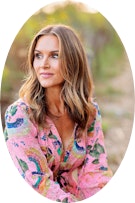Answer These 15 Questions to Improve Your Parenting
Based on years of scientific research as well as his work with thousands of patients, renown child psychiatrist, Dr. Daniel Siegel, has concluded that the biggest predictor of a child's well-being is his parents' level of self-understanding.
None of us made it out of our childhoods unscathed; we all have childhood traumas and "attachment wounds" that need to be tended to. Reflecting on and making sense of our childhood experiences is imperative for being "good" parents and for ensuring that we don't repeat dysfunctional relational patterns with our kids.
Some of you are thinking, Ok, I see how this true for people who had 'bad' childhoods, but this doesn't apply to me, I had a great childhood! I mean, nothing horrible happened, my parents were great and, look at me, I turned out just fine!
This may be true. I'm sure you turned out better than fine! But, there are no exemptions, we've all had difficult childhood experiences, or "traumas," which impacted our development.
So, even if nothing horrible happened during your childhood, in order to understand who you are, what makes you tick and why you have certain challenges as an adult, you've got to spend some time making sense of your childhood. There's just no way around it!
Let me give you an example... (note- the client gave signed consent to have her story told)
M is a mother of three who came to me because she was struggling with her 8-year-old son whom she described as "demanding, out of control and intense." He had sensory processing issues and had been recently diagnosed with ADHD. His behavior had become increasingly challenging - aggressive outbursts, defiance and verbal attacks- and she was frequently losing her temper and had begun to experience physical symptoms of anxiety.
She was intent on keeping the focus on her son and wanted to learn "parenting strategies to help 'change' his behavior." During our second session, she mentioned that while she understood that her son's sensory issues were causing him to act out and she felt bad for him, the fact that he couldn't 'control' his emotions and that he was so 'intense,' made her very uncomfortable and concerned about his future.
Upon hearing this, my attachment antenna went up. I asked her how emotions were handled in her family when she was younger. How did her parents respond to her emotions? Was she allowed to have big emotions or was it considered "bad" and "unacceptable"?
There was a long pause. "Ummmm... I don't know how to answer that, I don't really remember much about my childhood. And I'm just not a very emotional person in general. But, I don't see how that's important. I need to focus on what to do to change my son's behavior."
Her response was indicative of an avoidant attachment style, one in which the primary caregiver is emotionally unavailable and does not allow for the child's emotional expression. As a result, the child learns to detach from her emotions and internalizes the message that she can't rely on others nor does she need others for emotional support.
Adults with an avoidant attachment style tend to be uncomfortable with and judgmental of emotions, especially big displays of emotion, and dismissive of the importance of their childhood relationships, which seemed to be the case with M.
Over the course of our next several sessions, M began to see that a big part of what was going on with her son had to do with her not him! As she began to work on her ability to allow more space for his big emotions, by allowing more space for her own, his outbursts began to lessen.
Instead of responding dismissively and immediately judging him when he acted out, she began to get curious about what he needed from her. We worked on ways she could mirror, validate and allow for his experience, while simultaneously providing firm boundaries around things like phyiscal aggression.
In M's words, "I'd never 'worked' on myself in terms of thinking about how my relationship with my parents and my childhood experiences affected me. To be honest, it was hard for me to wrap my head around. But, I was desperate to help my son, so I decided to give it a try. When Cameron gave me the parent self-reflection questions to answer, my first reaction was resistance. But, once I started answering them, I couldn't believe the connections I started making. Doing this work is the best thing I've ever done to help my son."
If you have a child who is struggling and whose behavior is causing you to struggle, answering the following parental self-reflection questions (adapted from Parenting from the Inside Out) will surely help and is a great place to start. As my incredible mentor, Allison La Tona says, "If you want to change your child, change yourself."
15 Parental Self-Reflection Questions
- What was it like growing up? Who was in your family?
- Describe your relationship with your mother and your father. Are there ways in which you try to be like or try not to be like each of your parents?
- Did you have any experiences in childhood that felt overwhelming or traumatizing? Do these experiences still feel alive? Do they continue to influence your life?
- What were the most difficult things about your childhood?
- How were you disciplined as a child? How do you think this impacts your parenting?
- How did your parents communicate with you when you were happy and excited? Did they mirror your feelings, share in your excitement? When you were distressed or unhappy, how did they respond to you? Were you “allowed” to feel your feelings?
- How do you think your childhood experiences have influenced your relationships as an adult? Do you have patterns of behavior that you’d like to change, but are having difficulty changing? If so, what are they?
- What impact do you think your childhood has had on your adult life in general, including the ways in which you think of yourself and the ways you relate to your children?
- If you could go back in time and change anything about your childhood, what would it be?
- What are your strengths?
- What do you struggle with?
- How do you cope with life’s challenges? List your healthy coping strategies and your unhealthy coping strategies.
- Choose a difficult experience from your childhood. If you could go back in time, what would you want yourself to know? Close your eyes, picture yourself at that age and give yourself the support you wish you’d had.
- Where are you falling short? Instead of criticizing yourself for these challenges, extend yourself some compassion. Close your eyes and do a quick loving kindness meditation- “May I be happy, may I be healthy, may I be safe, may I live with ease.”
- What kind of parent do you want to be?
CLICK HERE to download the Parental Self-Reflection pdf
Our attachment with our parents and our childhood experiences are not the only factors that play in to who we are, how we perceive the world and how we parent our kids, but they are big pieces of the puzzle. Spending some time reflecting on and making sense of them, as hard as it may be, is an essential part of helping your child and becoming a better parent.
If you experienced significant trauma in your childhood and/or are struggling with mental health issues as an adult - anxiety, depression, addiction, an eating disorder - I encourage you to seek professional help from a therapist. To heal trauma, look for a therapist who is trained in EMDR, an evidenced-based therapy used to treat trauma.
If you're in the Los Angeles area, I recommend the following therapists: Lea Roussos (EMDR certified), Pam Siegel, Allison Schreiner, Jennifer Ollestad and Stephen Kenneally.
If you're in the north San Diego area, I recommend the following EMDR certified therapists: Janelle Nelson, Dr. Enid Singer, Dr. Craig Carlson, and Christie Turner.
Where are you in your parenting journey? Does thinking about your childhood experiences and the impact they had on you feel daunting? If you need extra support, CLICK HERE.




